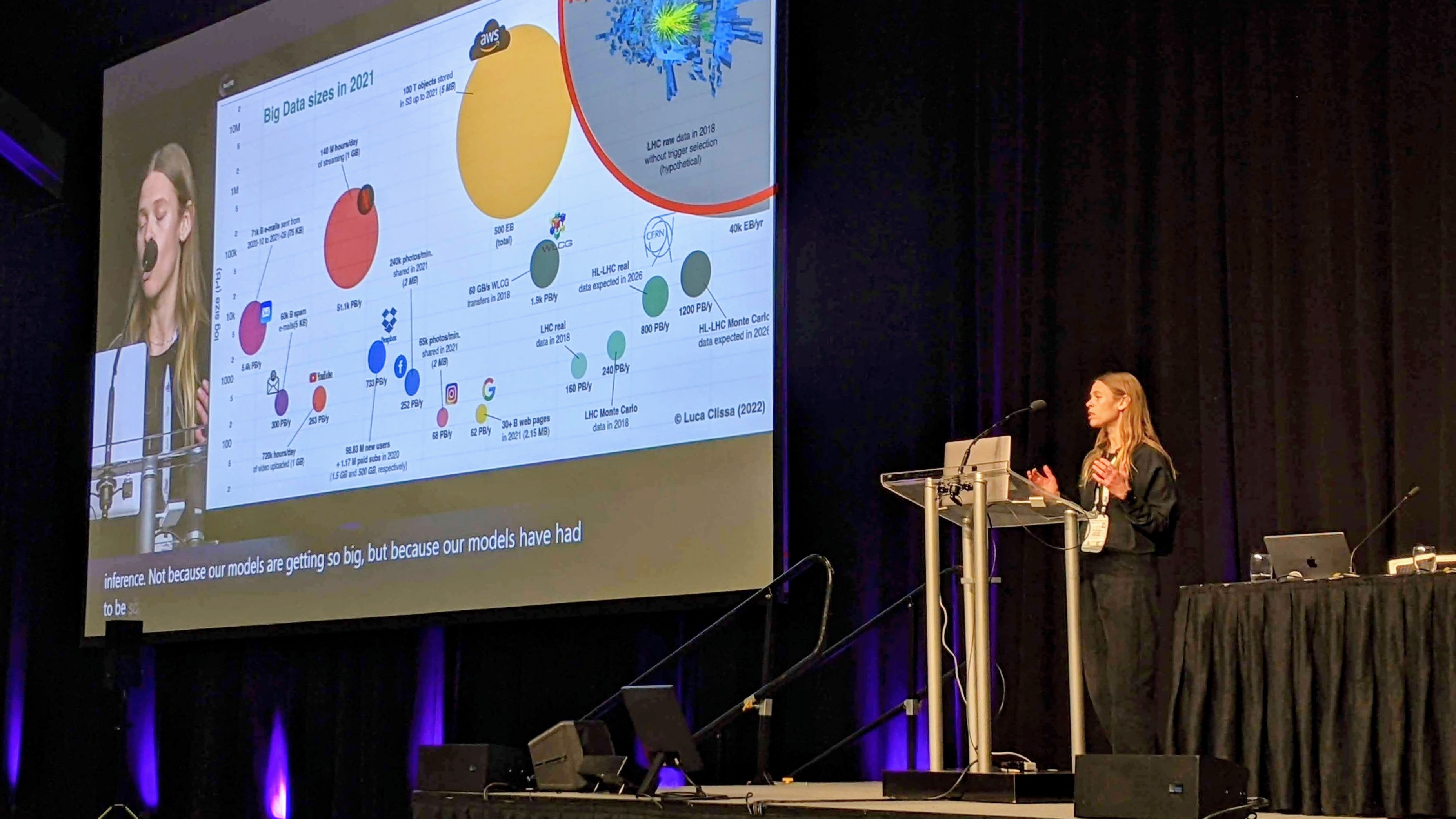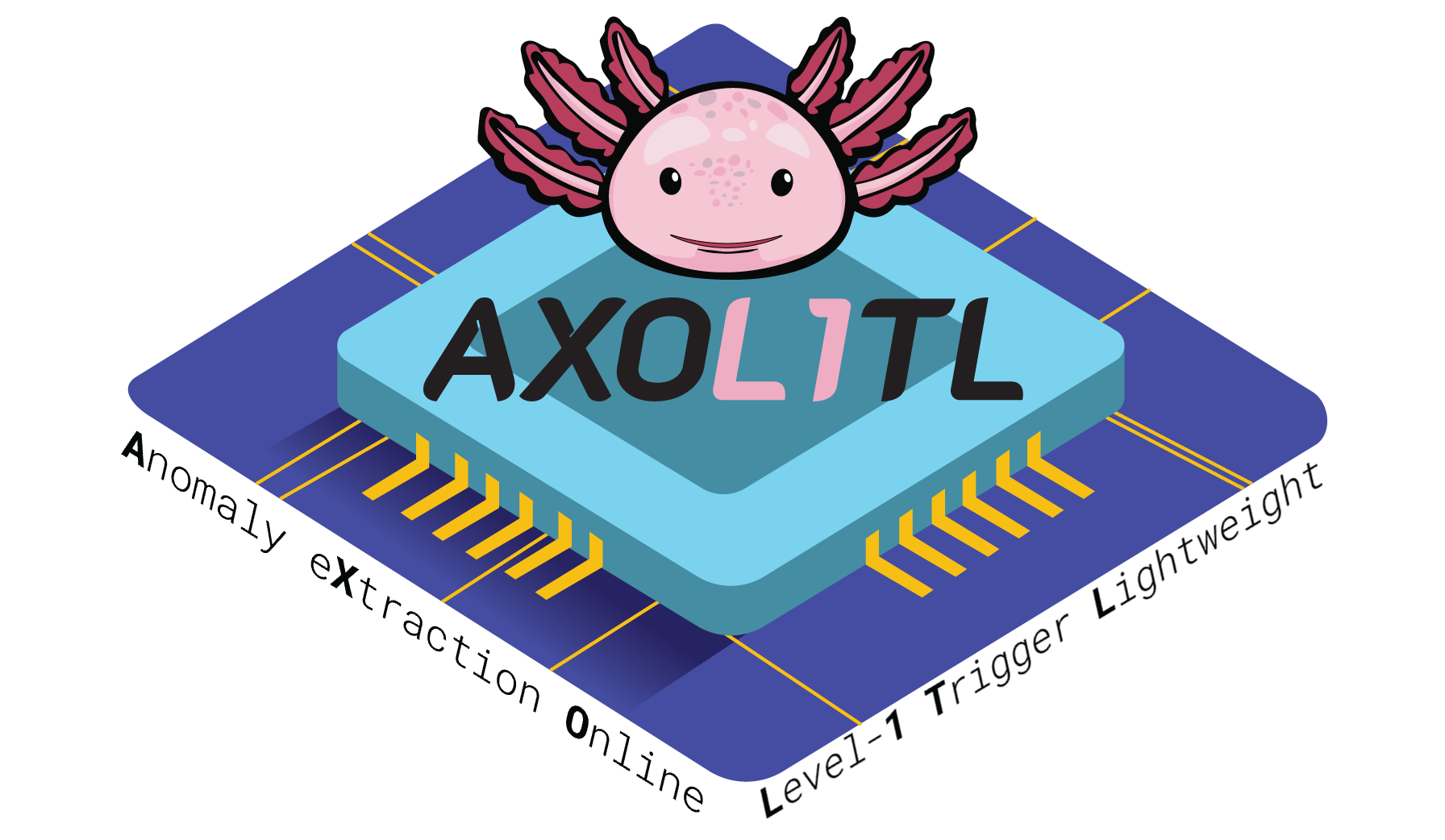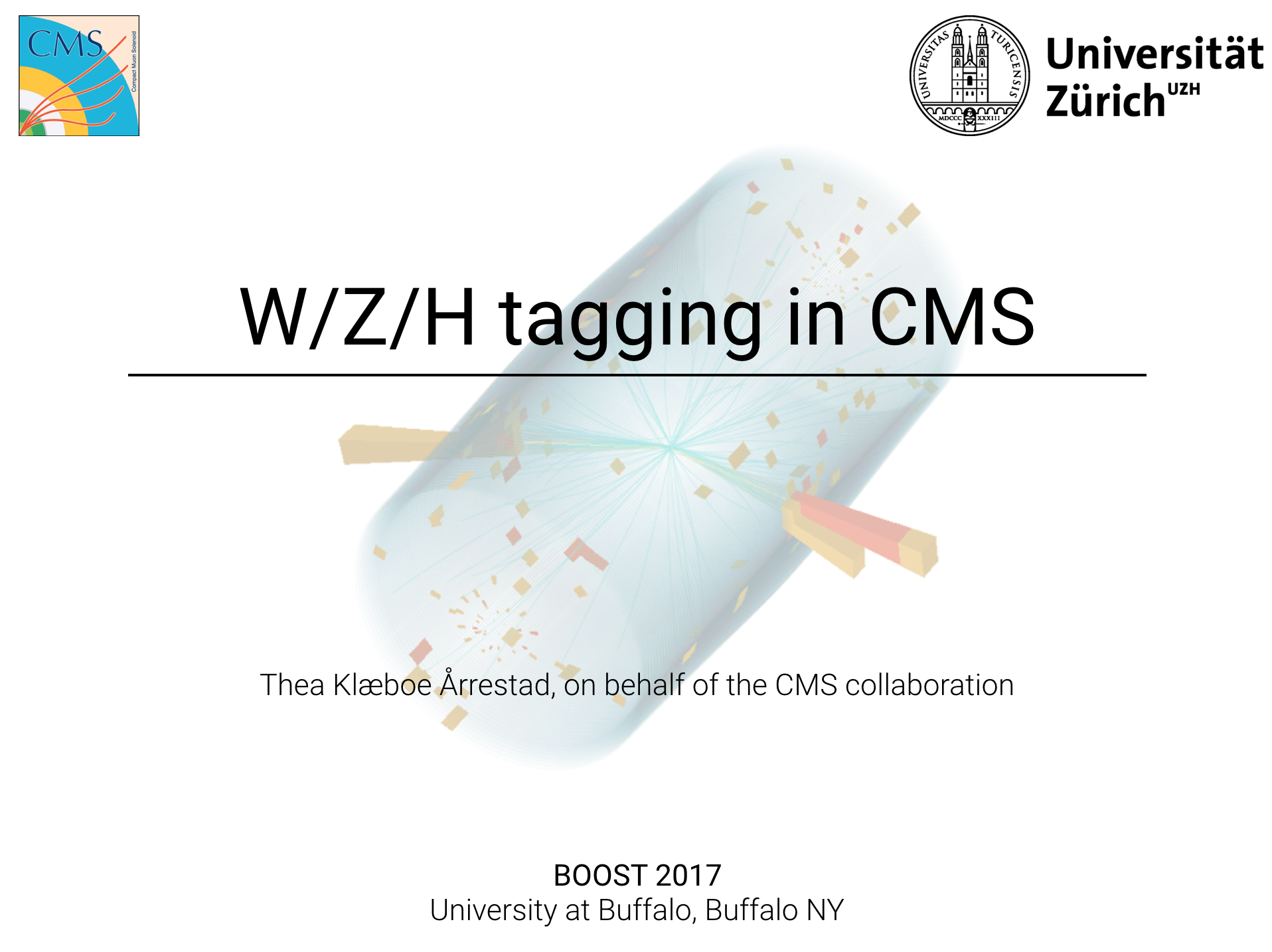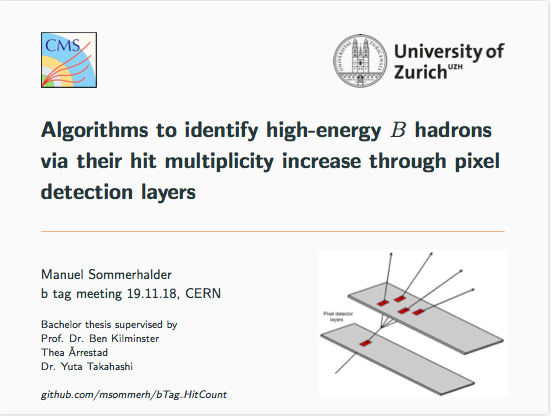About me
I am a particle physicist currently working as a senior research fellow at ETH Zurich and CERN. When I’m not buried in a book on the history or philosophy of science, I like to use Machine Learning to improve the way we collect and analyze data at the Large Hadron Collider.
My favorite topic is real-time Machine Learning: how we can use efficient ML to process enormous data rates (63 Tb/s!) at the LHC within a latency of 12 microseconds (and often sub-100 ns). Yes, that’s faster than you can blink — several times over.
I also really enjoy developing ML-based anomaly detection methods as a way of discovering New Physics (spoiler alert: haven’t found anything yet — but hope springs eternal). Somewhere between physics, algorithms, and a healthy amount of V60 Geisha, I try to build tools that help us squeeze every last bit of insight out of the universe’s smallest building blocks.
When I’m not writing code or watching YouTube videos about ML, you can usually find me hunting for the nearest hill to go trail running — preferably in knee-deep mud.
Working at a university, one of the things I value most is supervising students and giving lectures and schools on ML and particle physics. I’m always excited about new ideas, interdisciplinary collaborations, and ambitious student projects.
Don’t be afraid to send me an email if you have questions, want to collaborate on a fun project, or just want to talk about physics, ML, or good trail-running shoes.
Recent news
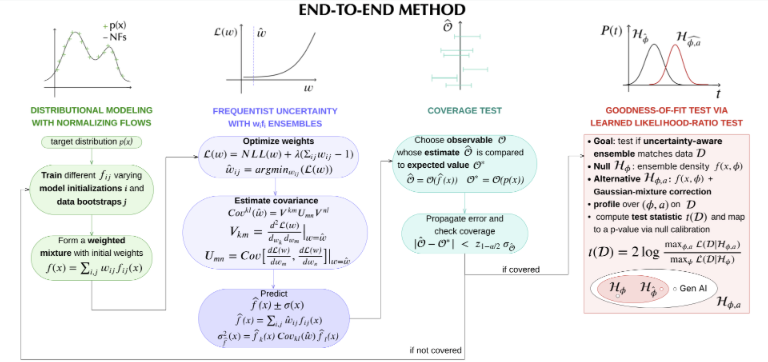
Poster at NeurIPS 2025: Uncertainty-Aware Validation of Generative AI
Congratulations to Giada Badaracco on her poster accepted at the NeurIPS 2025 conference! Titled “An end-to-end pipeline for uncertainty-aware validation of generative AI,” the work proposes a unified framework combining generative models with principled uncertainty quantification for robust scientific validation — crucial for reliable hypothesis testing in physical sciences and beyond. The poster was presented in the Machine Learning and the Physical Sciences workshop at NeurIPS 2025 in San Diego.
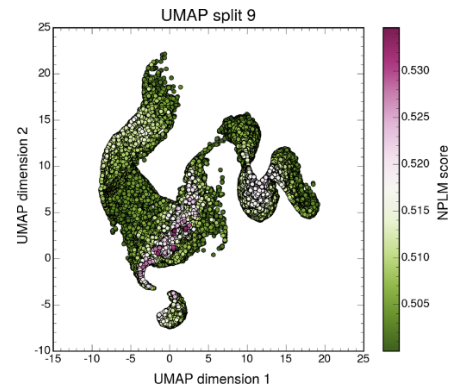
New paper: Anomaly-Preserving Contrastive Neural Embeddings
Our latest Phys. Rev. D paper presents a novel contrastive neural embedding approach for end-to-end model-independent anomaly detection at the LHC. By learning low-dimensional representations that preserve rare features, this method significantly enhances sensitivity to subtle deviations from the Standard Model — a key step toward more powerful searches for New Physics.

Holy Moly, an ERC Starting Grant!
Very excited to have received an ERC Starting Grant to keep pushing real-time ML and anomaly detection for New Physics Searches!
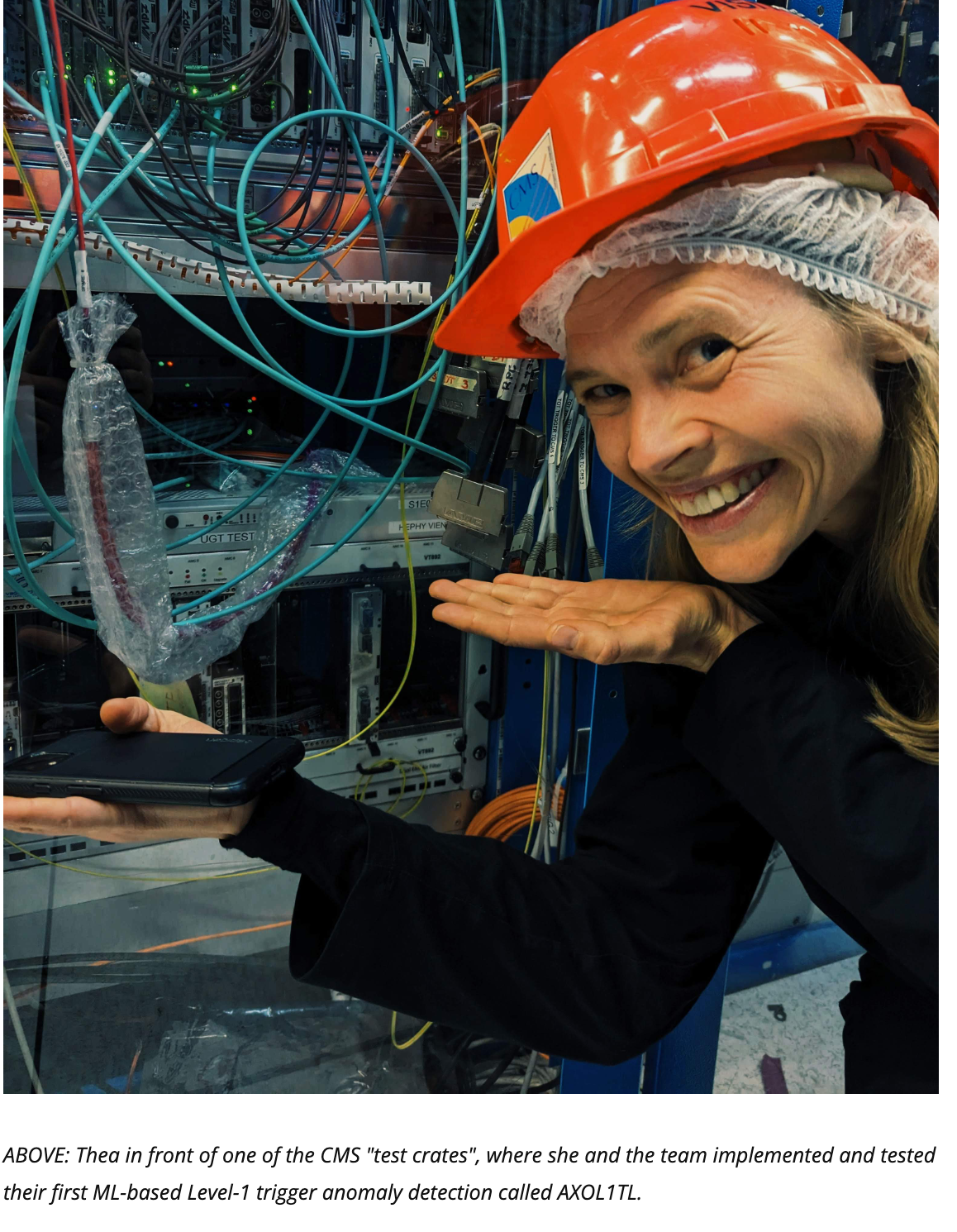
European Physical Society Young Experimental Physicist Prize 2025!
So grateful and happy to receive the European Physical Society Young Experimental Physicist Prize 2025! Go AI for HEP!

AMD Tech Summit Keynote
It was a pleasure to visit AMD in Dublin and give a keynote on real-time inference in particle physics experiments!

Paper out! Anomaly Detection for New Physics Searches
The pre-print of our paper on ML-accelerated anomaly detection for New Physics searches is now out!
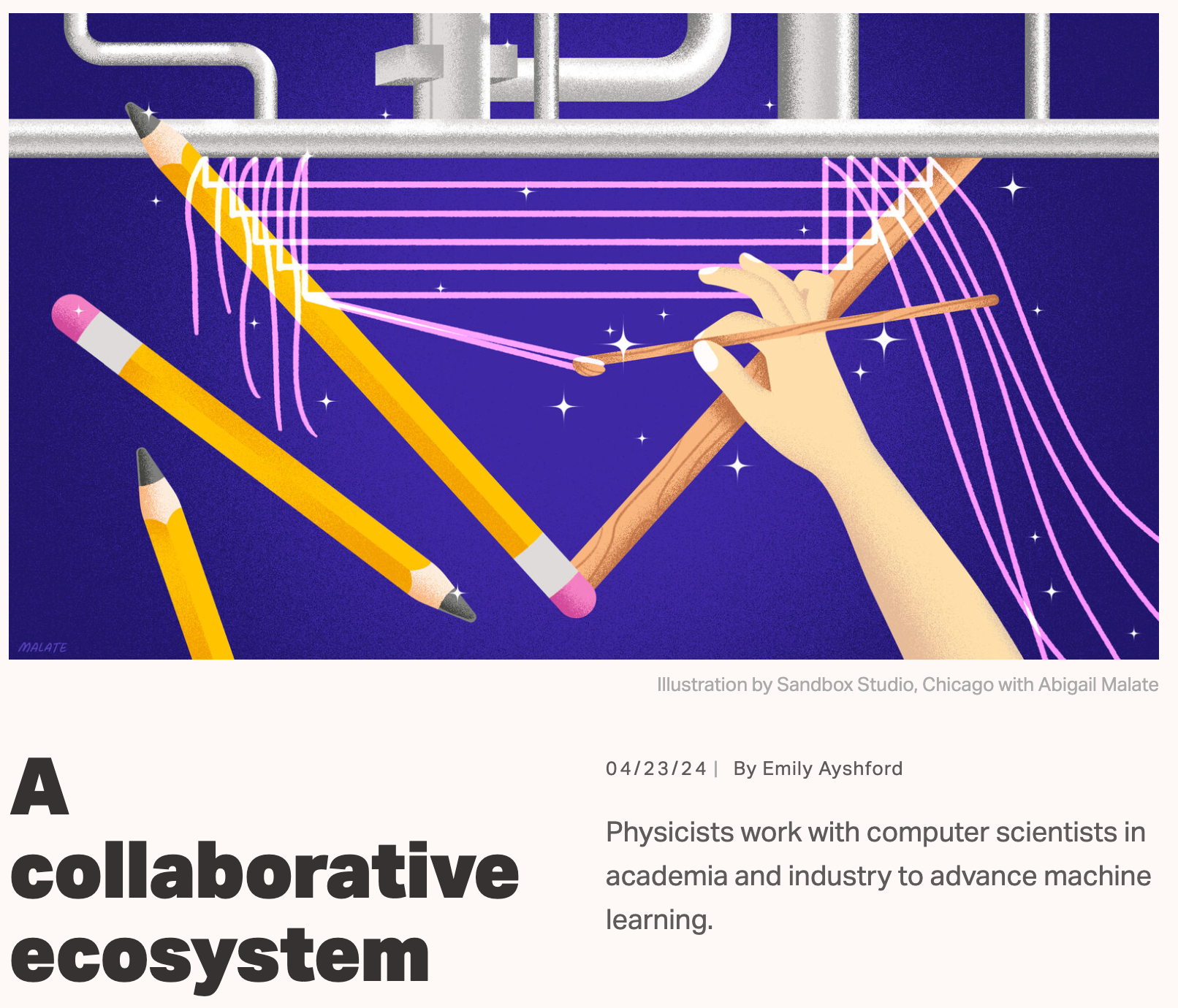
Symmetry Magazine Interview
On why I believe collaborations with industry are essential for the future of particle physics.

IEEE Nuclear Science Symposium keynote
Honored to be a plenary speaker at IEEE Nuclear Science Symposium 2024 in Florida! Also convening the track AI and Machine Learning for Radiation Detection together with Audrey Corbeil Therrien, and I am excited to see the many applications of AI in nuclear science!

Generative AI in the Physical Sciences
Look forward for talking about Physics-Motivated Approaches to Hardware Design (distributed foundation models on FPGAs) at MIT next week!
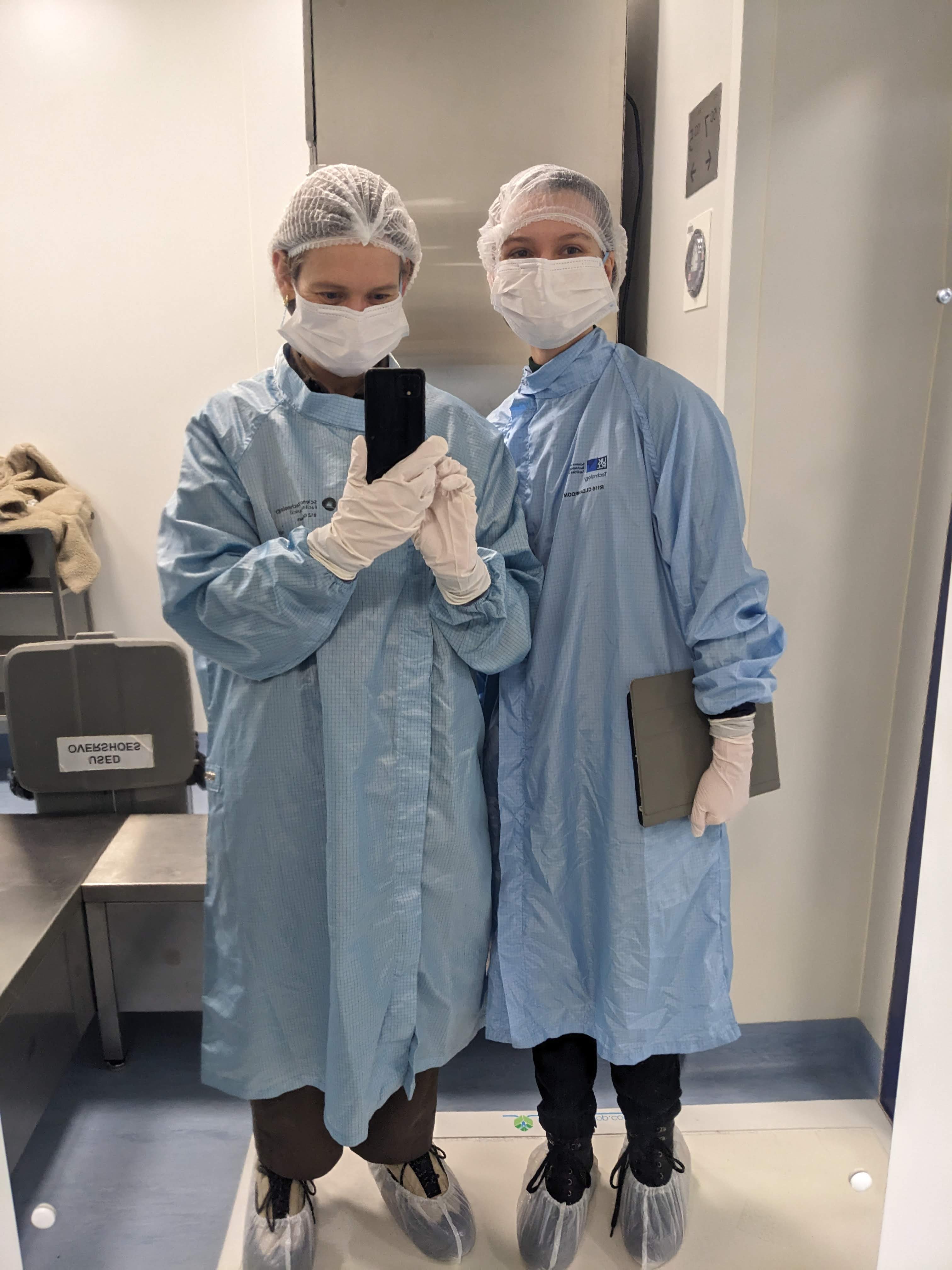
Seminar at Rutherford Appleton Laboratory
Really enjoyed visiting RAL, an impressive laboratory with a vast research program. A recording of my seminar is available above!

Group photo fall semester 2023
This semester I was lucky to have four fantastic students: Kyle Metzger (Physics), Matthias Bonvin (Applied Maths), Patrick Odagiu (Physics, PhD) and Jessica Prendi (Physics). I am very happy that I get to keep all of them as master students next semester!
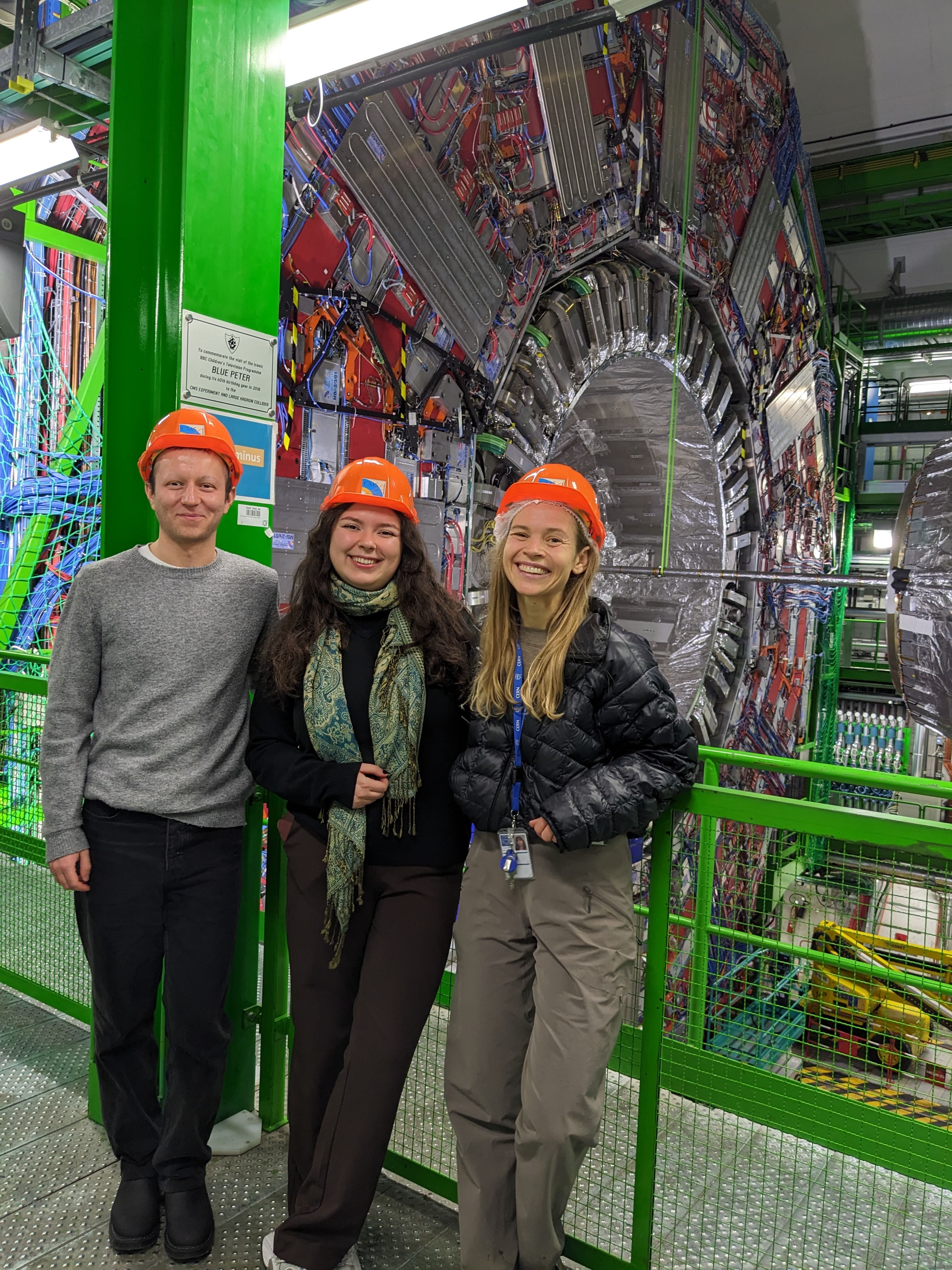
ETH IPAi visits CMS
My students Jessica Prendi and Patrick Odagiu got to visit CMS today during the winter shutdown
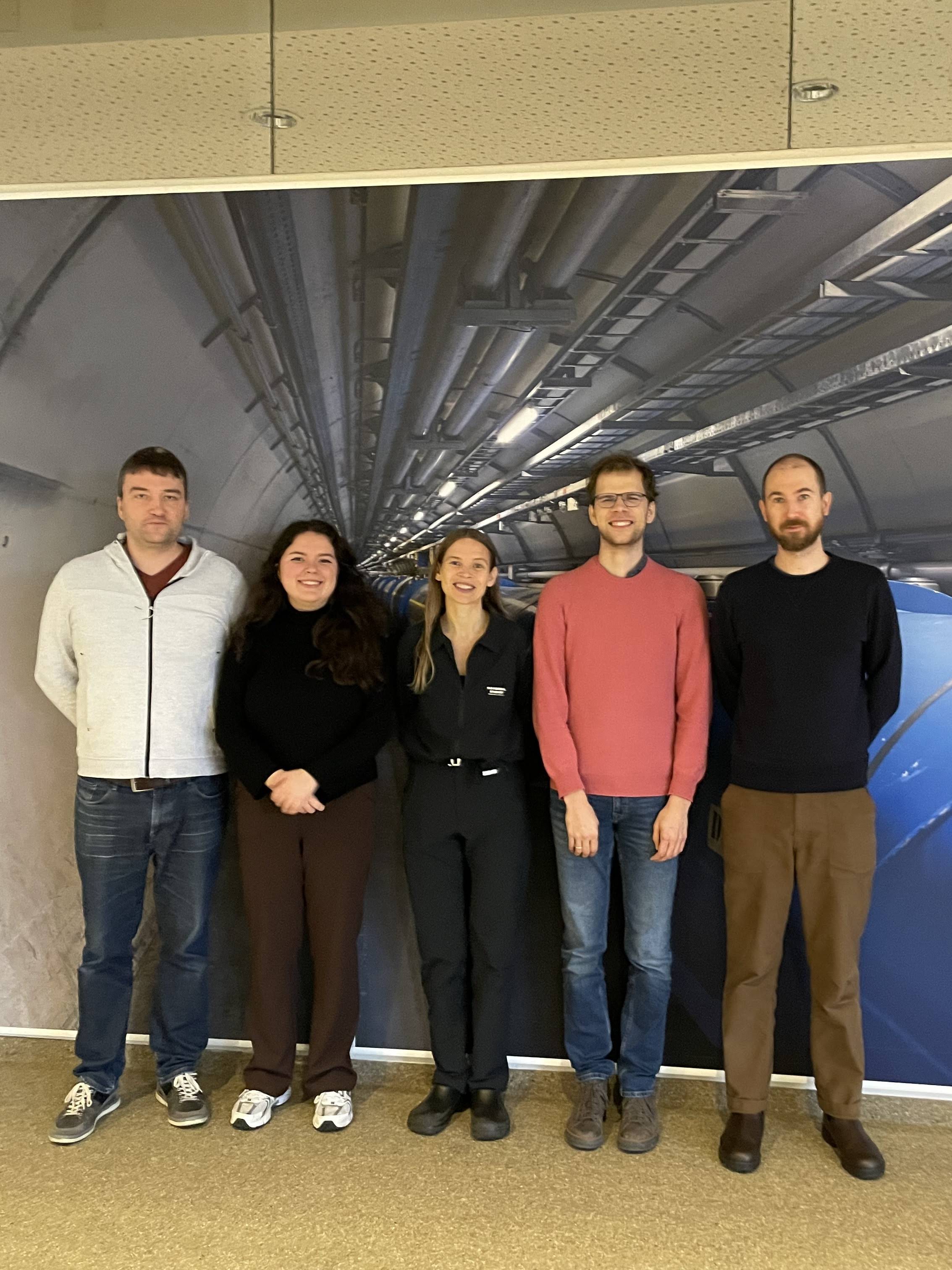
Google visits CERN
CERN with our collaborators Richard Stotz and Mathieu Guillame-Bert from Google Zurich.

Norwegian Teacher's Program
I brought my daughter to CERN to teach Norwegian highschool teachers about Machine Learning and particle physics. The CERN teacher program is fantastic!
Coffee lecture for ETH students
It was an honour to be invited to talk to mathematics, physics and computer science students at ETH about how to make an academic career in physics as a woman.

Anomaly Detection in Particle Physics
Our review paper on anomaly detection for particle physics has appeared in Review in Physics. A comprehensive overview on anomaly detection for New Physics searches and for triggering!
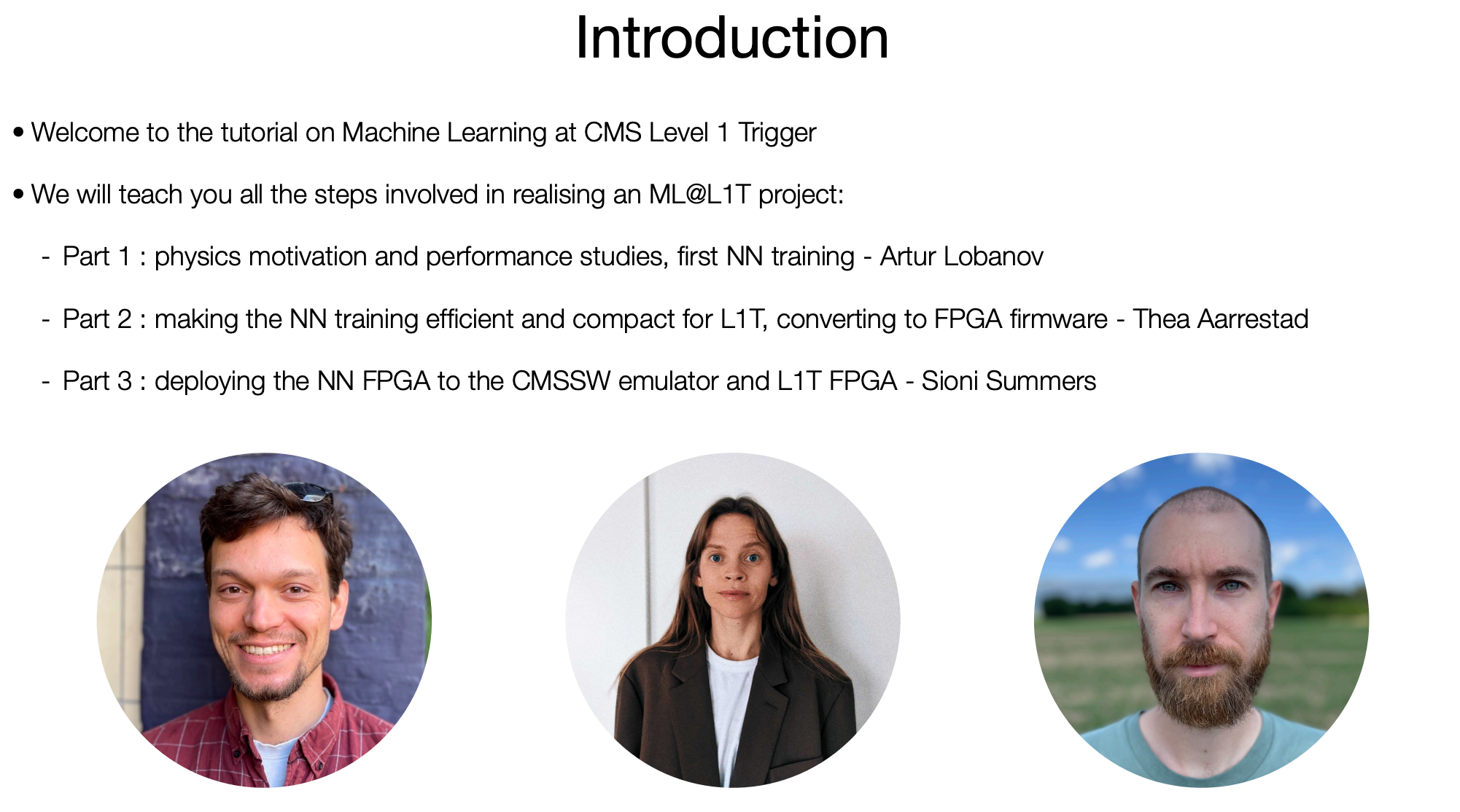
ML at L1T Workshop at CERN
We had a very productive workshop dedicated to ML algorithms for the CMS Level-1 hardware trigger. Sioni Summers, Artur Lobanov and I put together a nice tutorial on how to design, compress and deploy ML algorithms on the L1T FPGAs. Recordings available above!
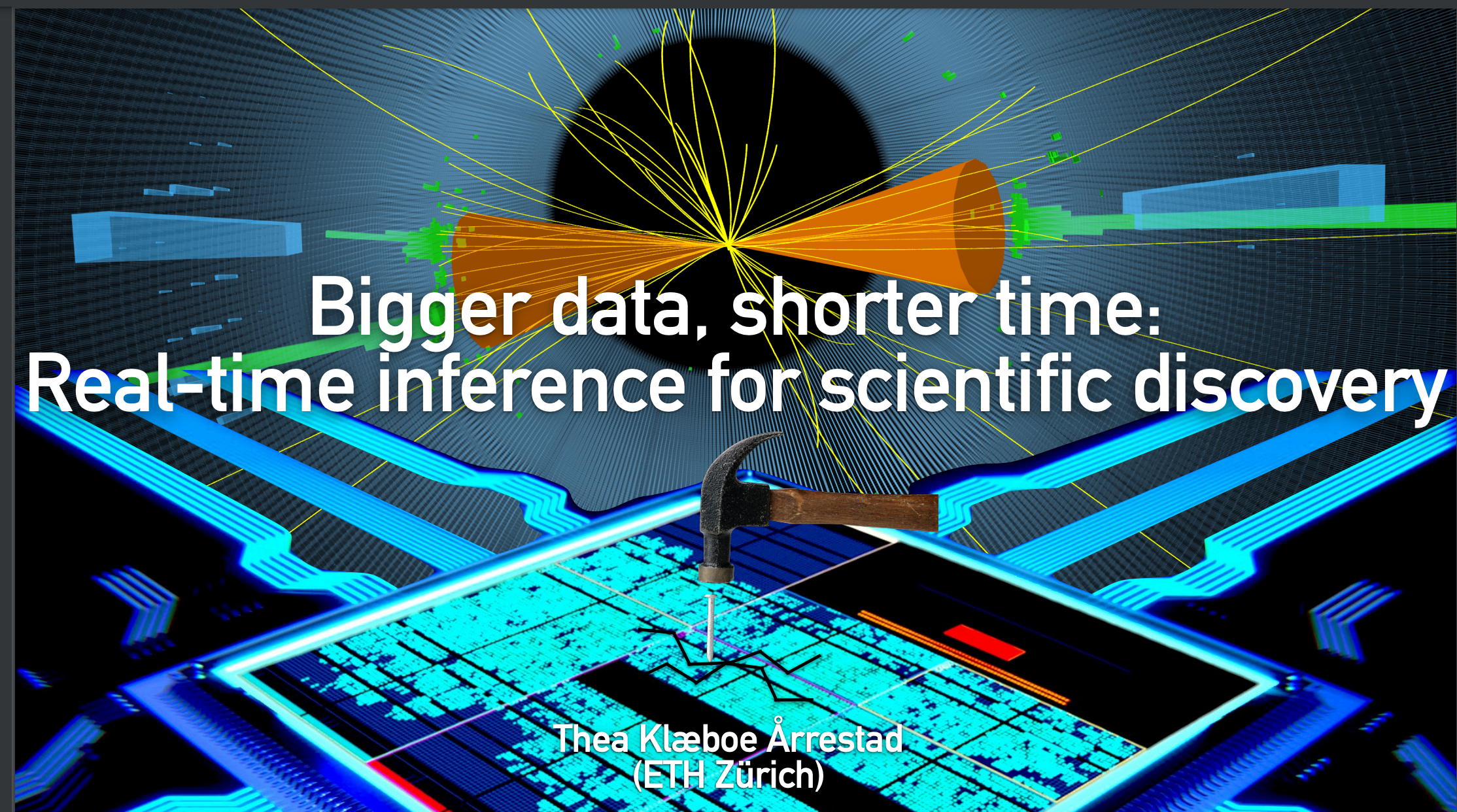
Hammers & Nails 2023
Hammers & Nails is a great workshop focused on how we can use the machine learning hammer to do better science. With open-ended lectures spanning academia and industry, it is a place where ideas are born. I gave an invited talk about real-time machine learning on specialized hardware, that you can find on the link above.
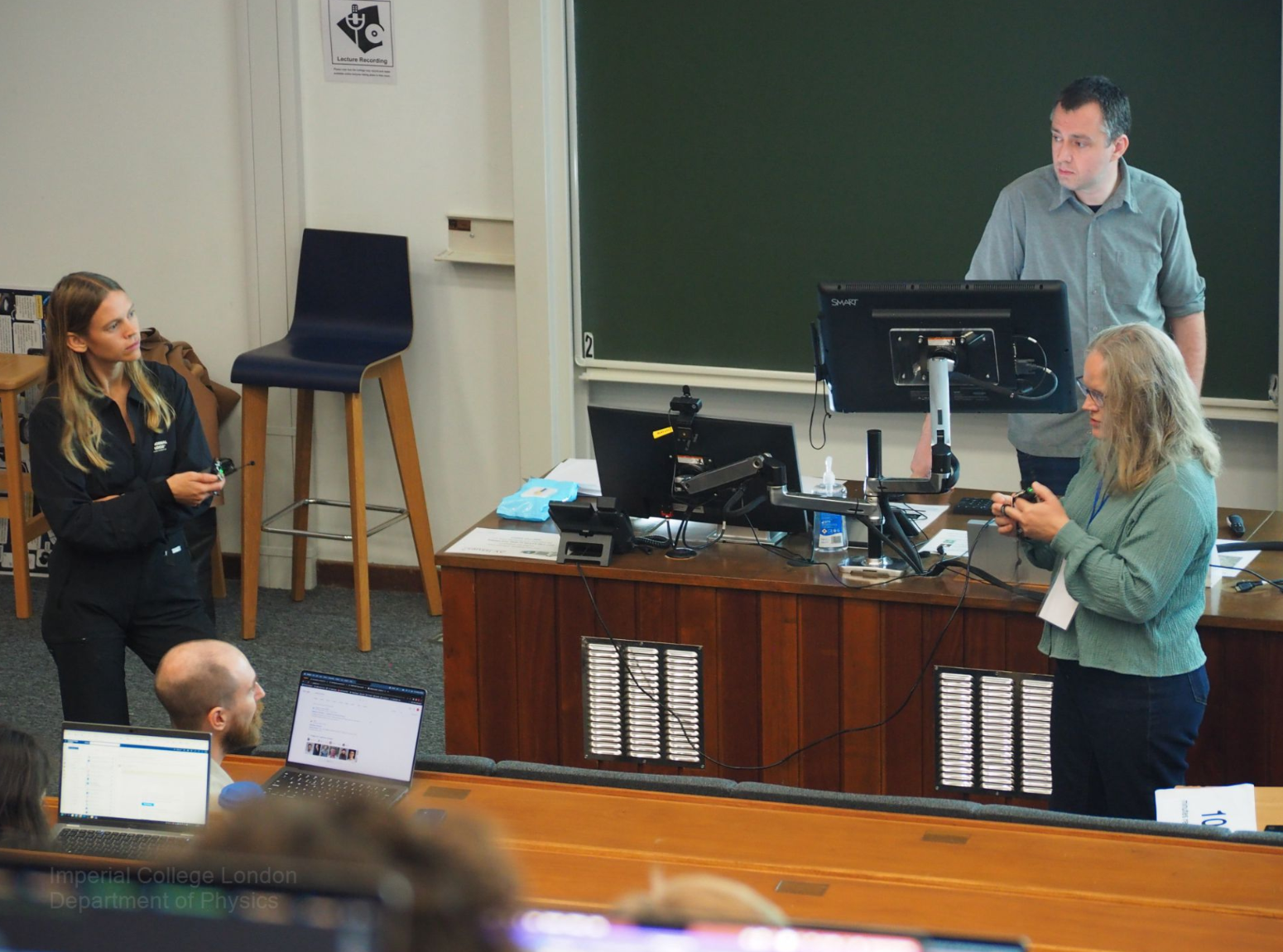
Fast Machine Learning for Science 2023
Our yearly Fast ML Workshop was at Imperial College in London this year. It featured an excellent program with speakers from biomedicine, free-electron laser accelerators, laser wakefields, fusion, accelerator control and much more. I was excited to give an overiew talk over fast ML at the LHC.
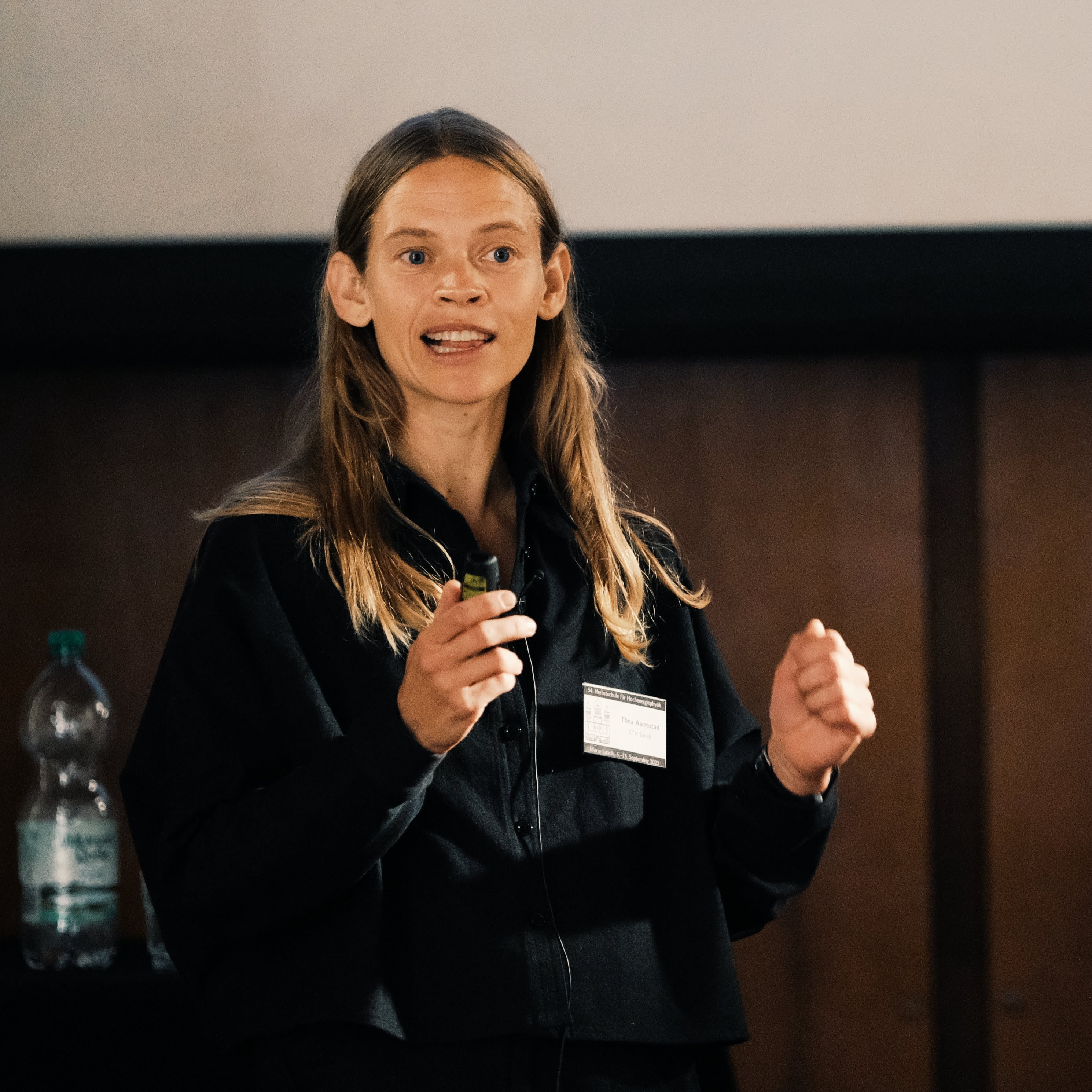
Maria Laach school: ML lecture series
It was an honour getting to lecture at the renowned Herbstschule fur Hochenergiephysik Maria Laach. I gave a three hour lecture series on Machine Learning in Particle Physics.
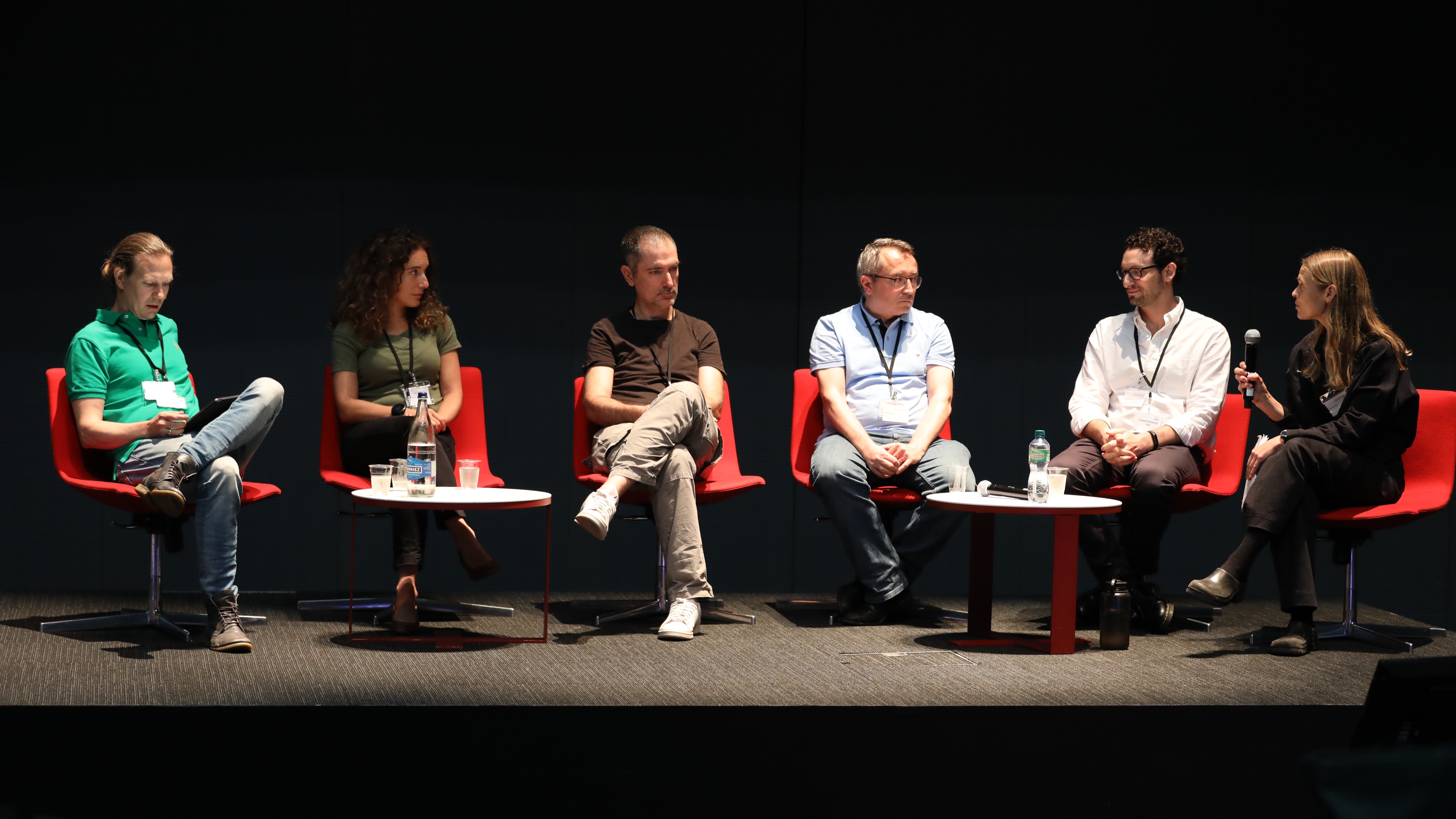
AI in the Physical Sciences
Tobias Golling (University of Geneva) and I had a very interesting discussion on how we to leverage AI in the Physical Sciences with our panelists Francois Charton (META Paris), Francois Fleuret (University of Geneva), Michael Kagan (SLAC), and Sofia Vallecorsa (CERN) at AI2S2 in Geneva today!
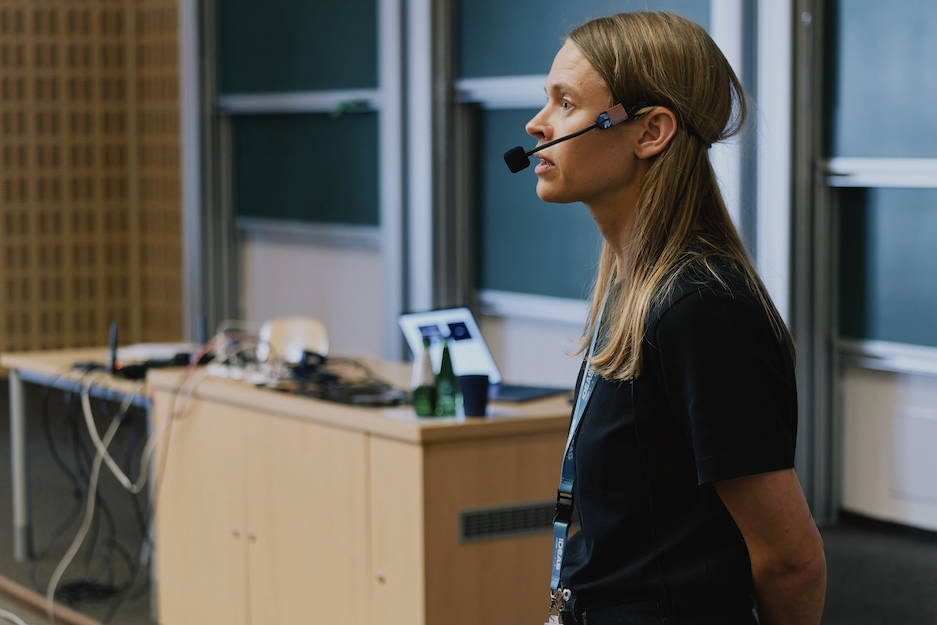
My MLSS^S lecture is now online!
My lecture on ML at CERN for the ML Summer School in Krakow is now on YouTube!
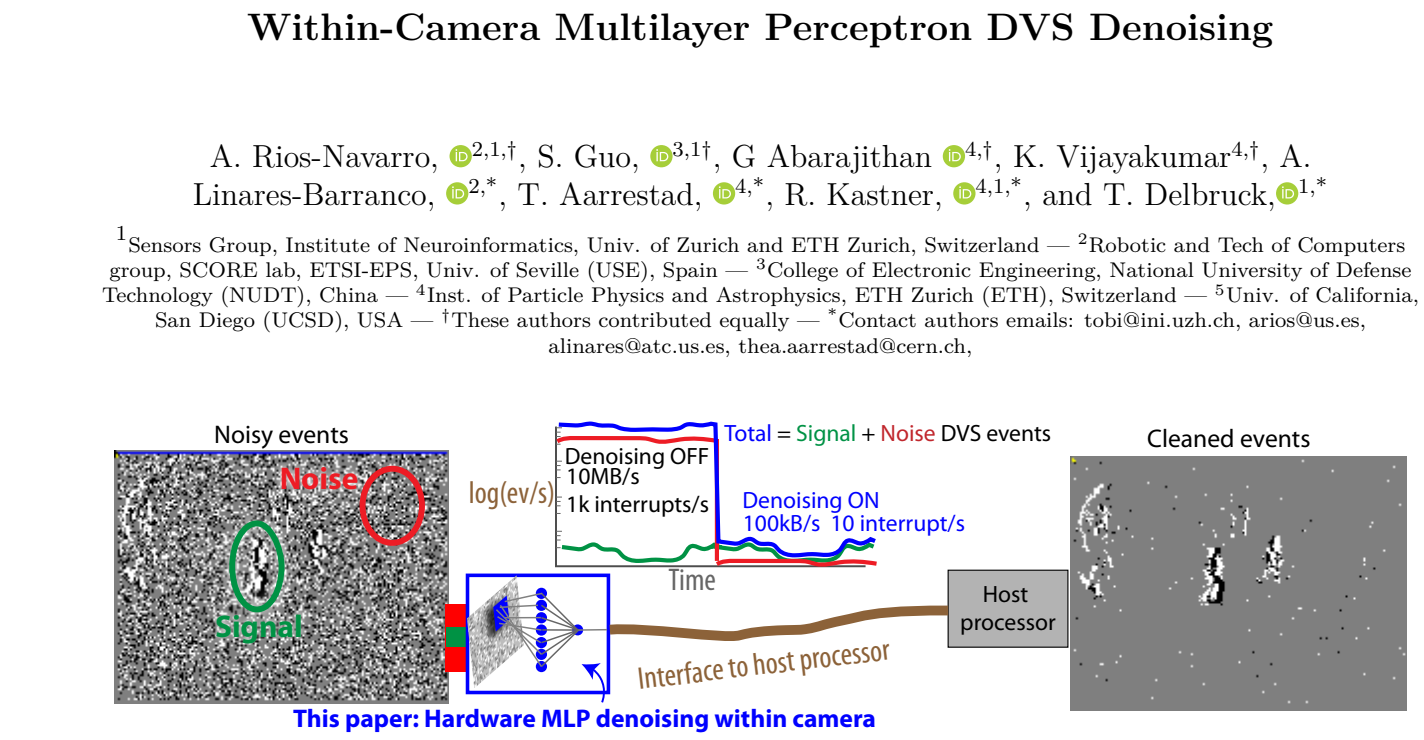
CVPR 2023: Real-time inference for event cameras
Our paper on within camera enoising for DVS cameras was accepted for CVPR 2023. It was a great pleasure to collaborate with other departments and universities on something I do not usually work on.
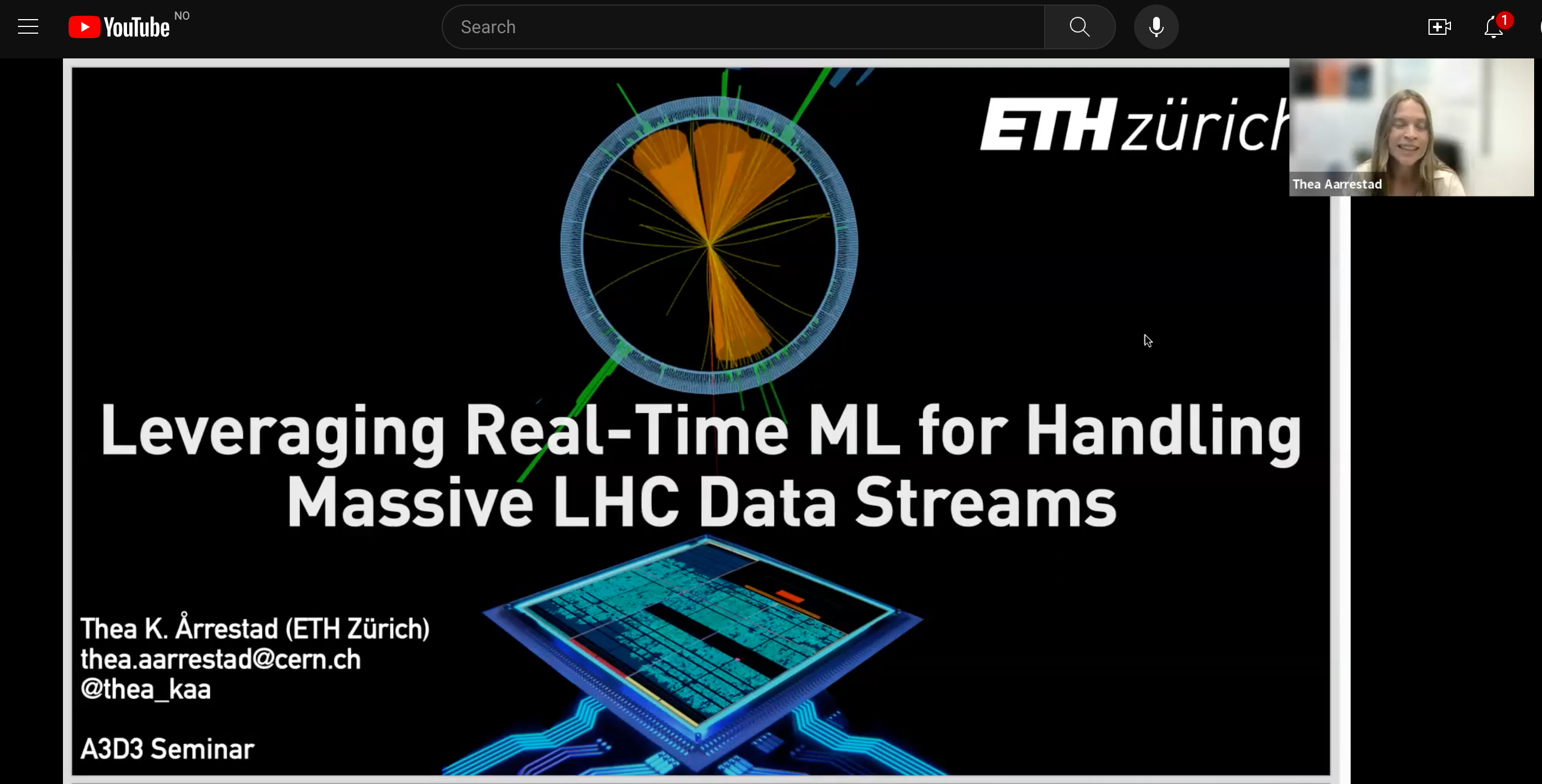
A3D3 Seminar: Leveraging Real-Time ML for Handling Massive LHC Data Streams
My A3D3 seminar is now on YouTube!
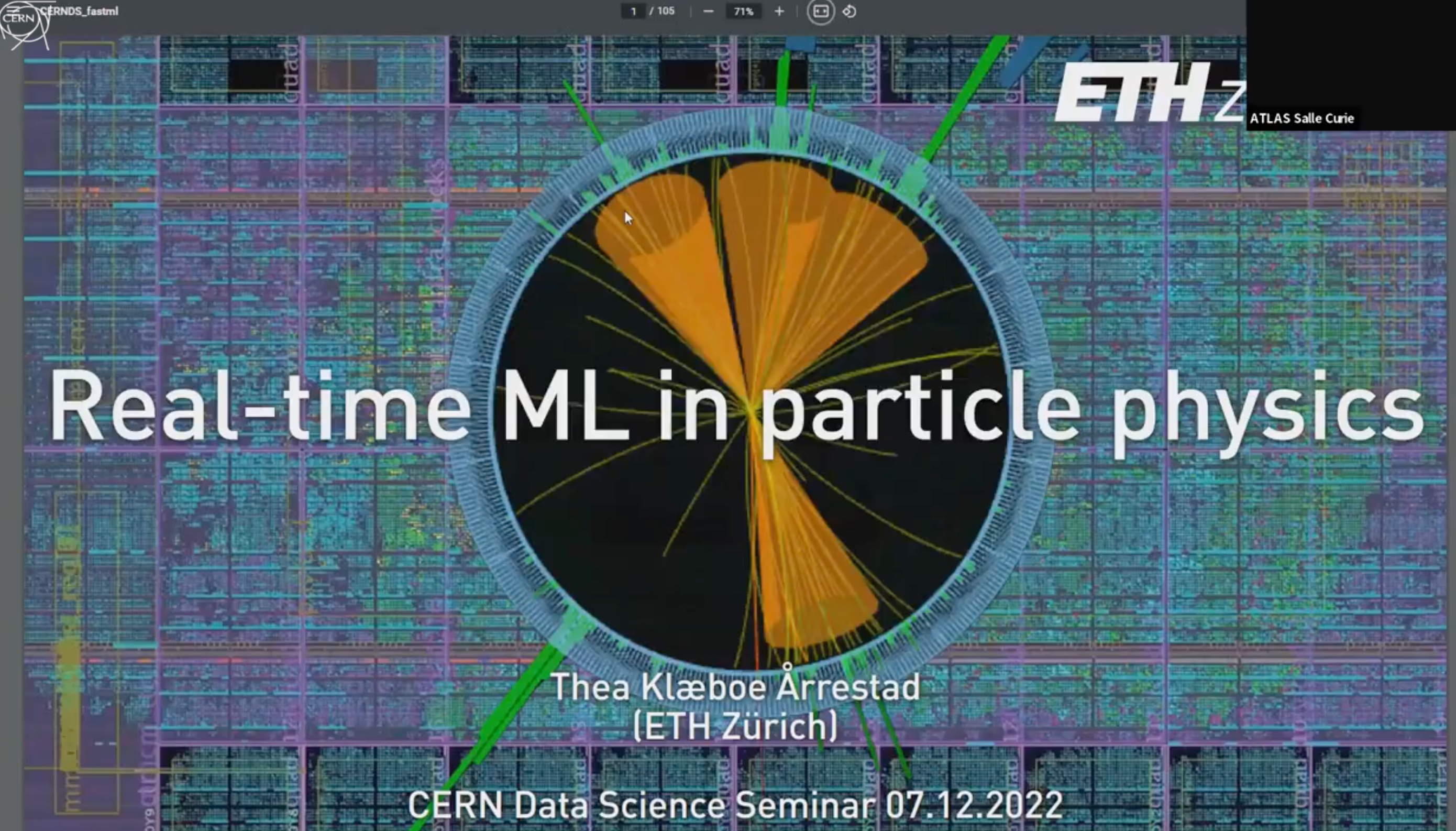
CERN Data Science Seminar: Real-time ML in Particle Physics
Over 500 people followed my talk at CERN on our work on real-time inference in particle physics! The talk is now online
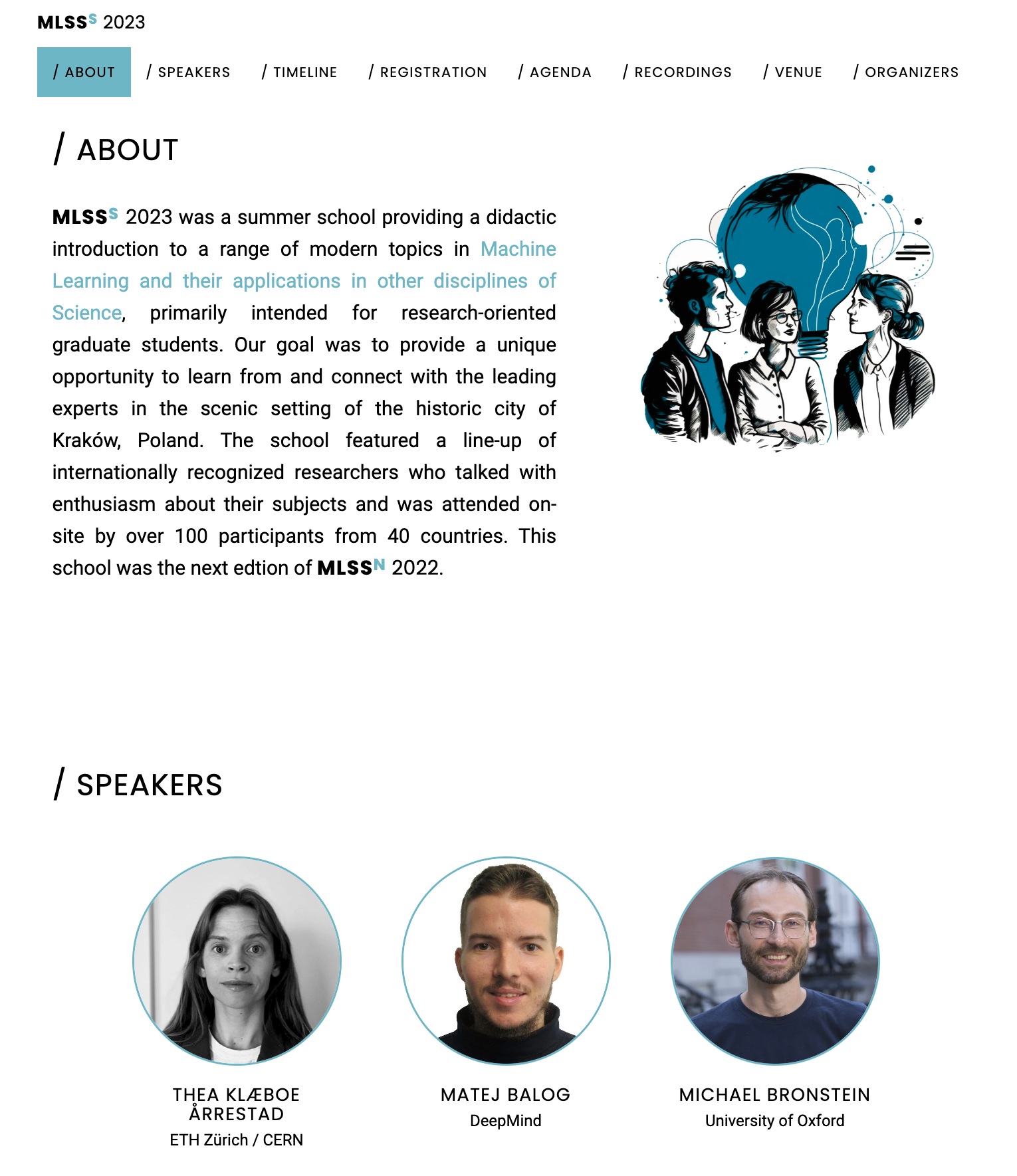
Machine Learning Summer School^Science
FLooking forward for joining this line-up of excellent speakers in Krakow!
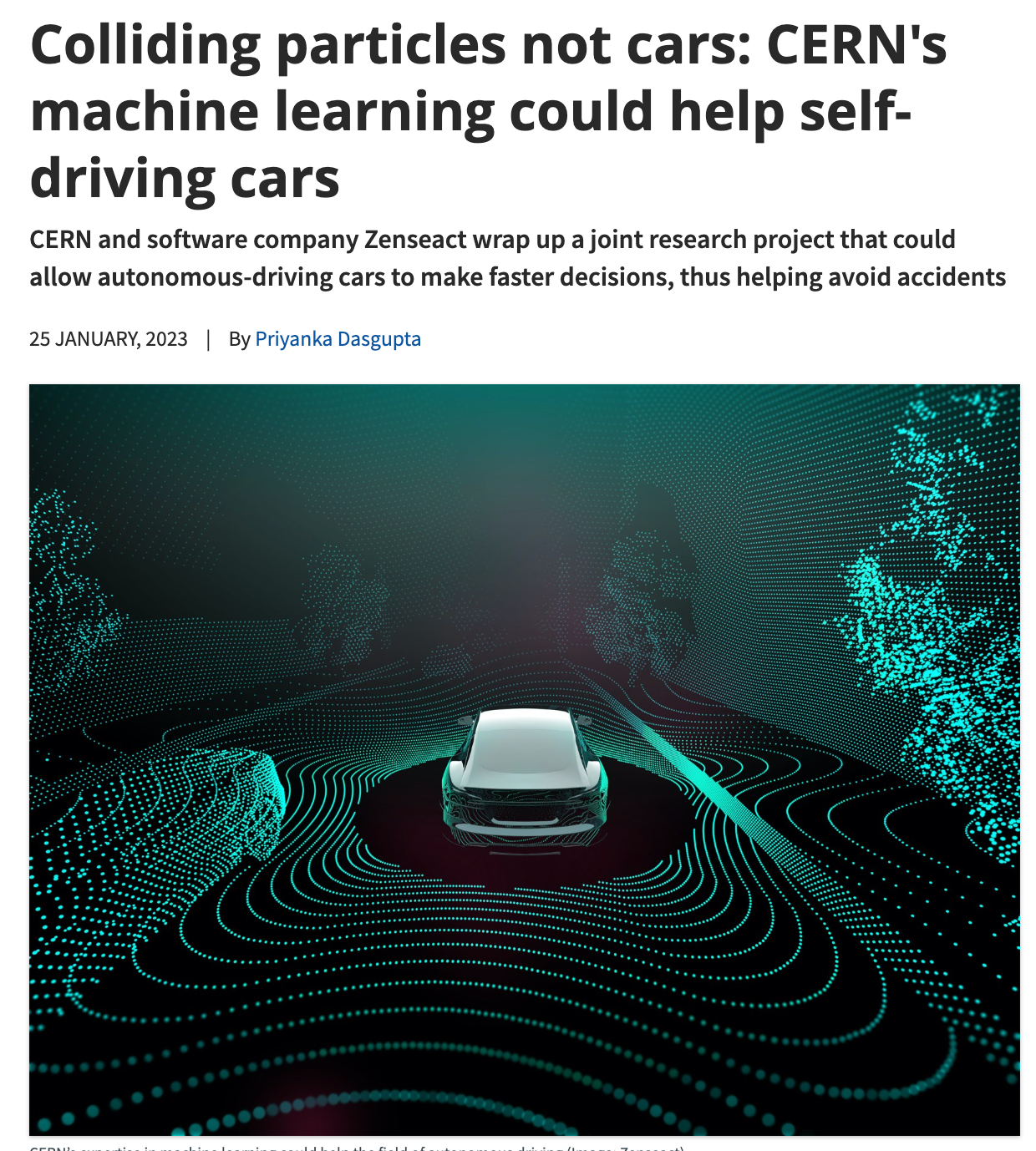
Our collaboration with Volvo's Zenseact
We had a lot of fun working with Zenseact on real-time inference for self-driving cars!
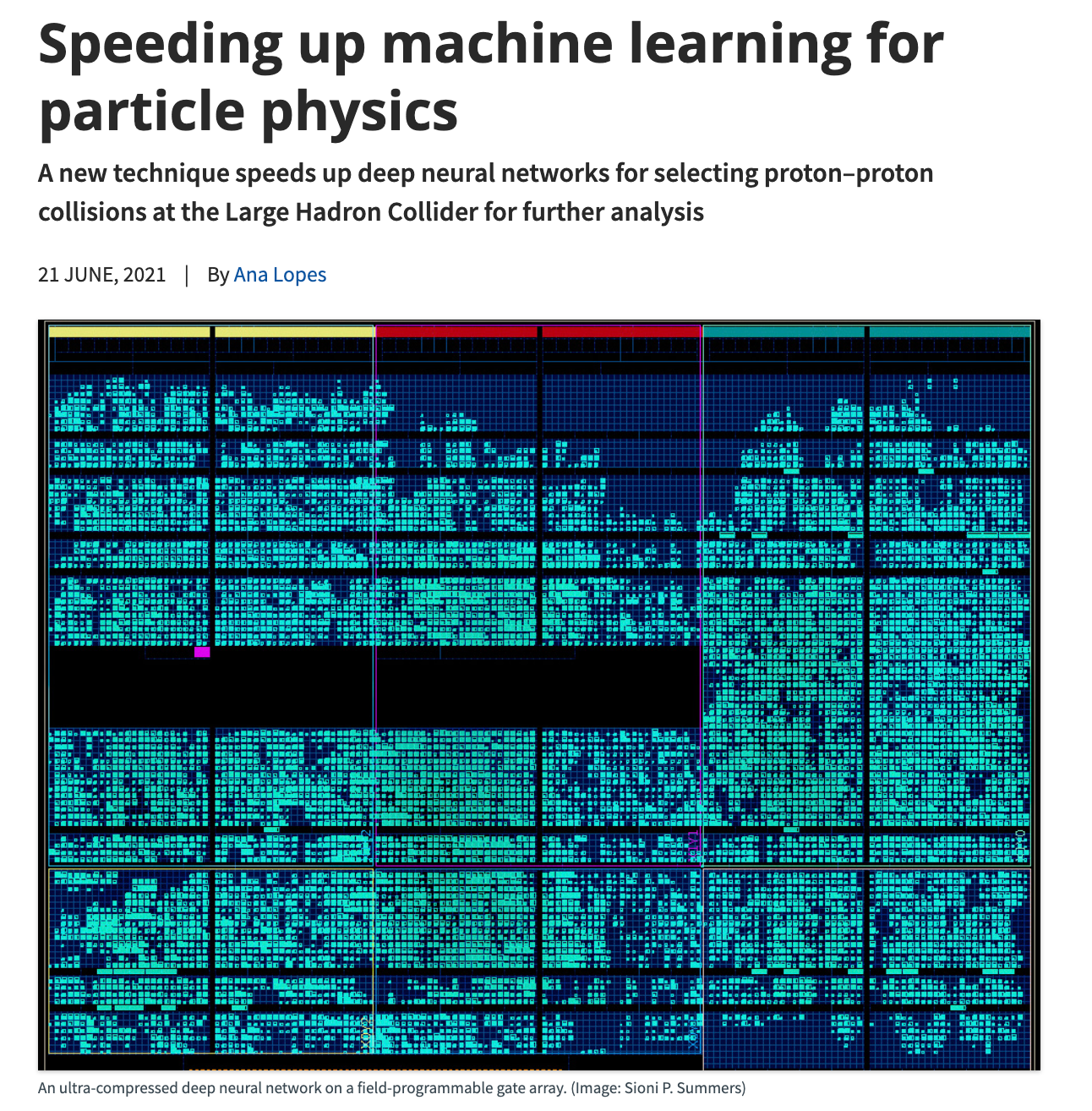
Our Google-CERN collaboration in the news!
Our collaboration with Google highlighted in the CERN Courier
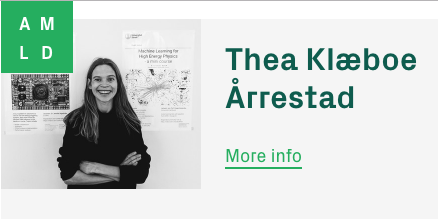
Applied ML Days: Women in ML
Honored to be promoted amongst these talented women doing Machine Learning!
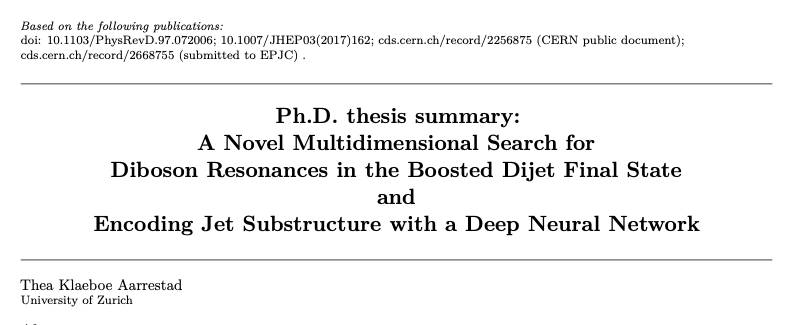
CHIPP Prize: Top 3 Particle Physics PhD theses in Switzerland
My PhD thesis was nominated for the 2019 CHIPP Prize! The purpose is to reward the best PhD student in Experimental or Theoretical Particle Physics and I was nominated together with two other Swiss PhD candidates. Unfortunately I did not win, but I am very proud to have been nominated together with the two other excellent candidates. Find my thesis summary that got nominated attached!

Finally a doctor!
I am a doctor! I very much enjoyed presenting my PhD thesis to friends, family and colleagues. You can find my presentation here!
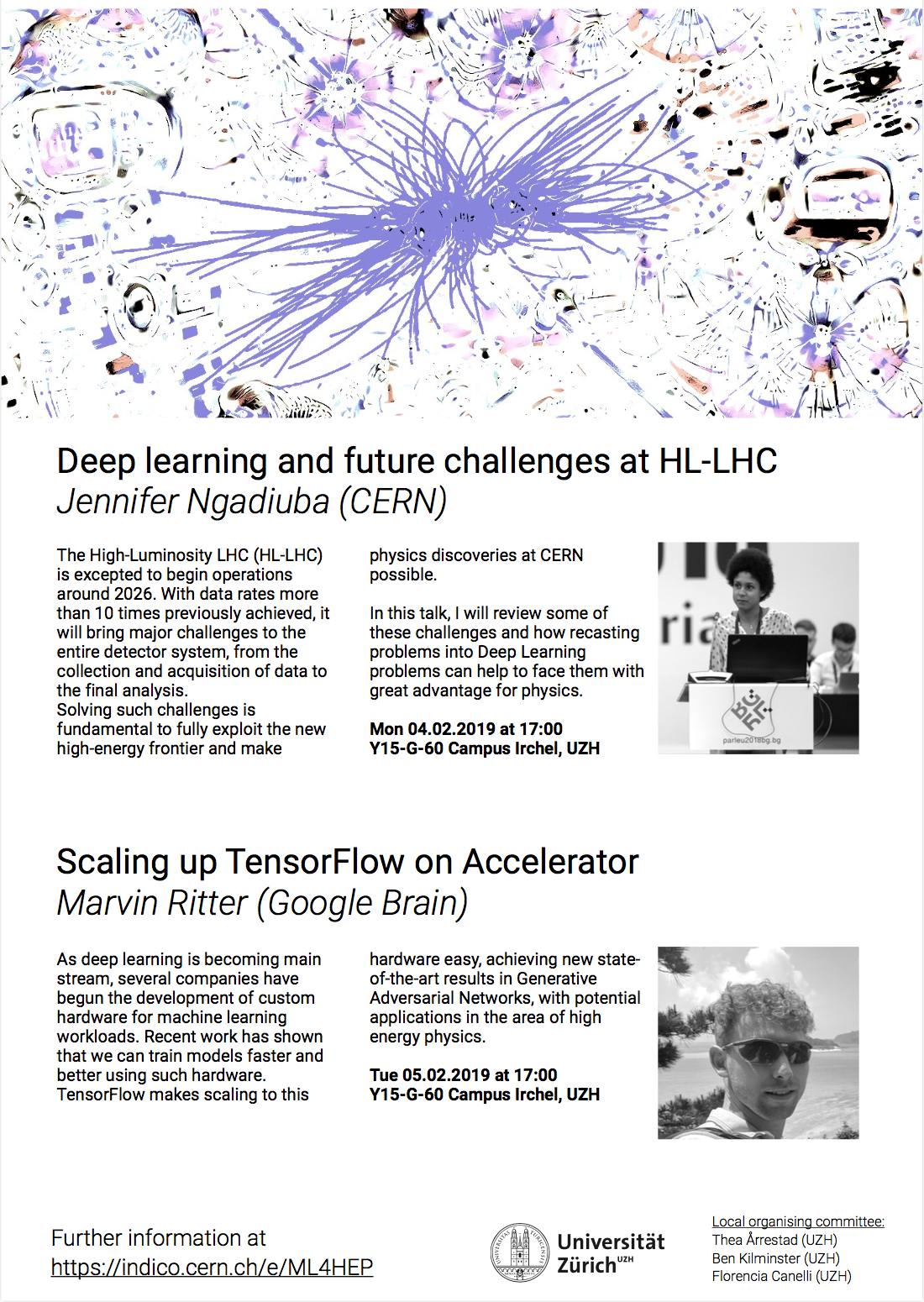
ML4HEP: Evening lectures
In connection with the ML4HEP school, have a look at these two great evening talks we are organizing!
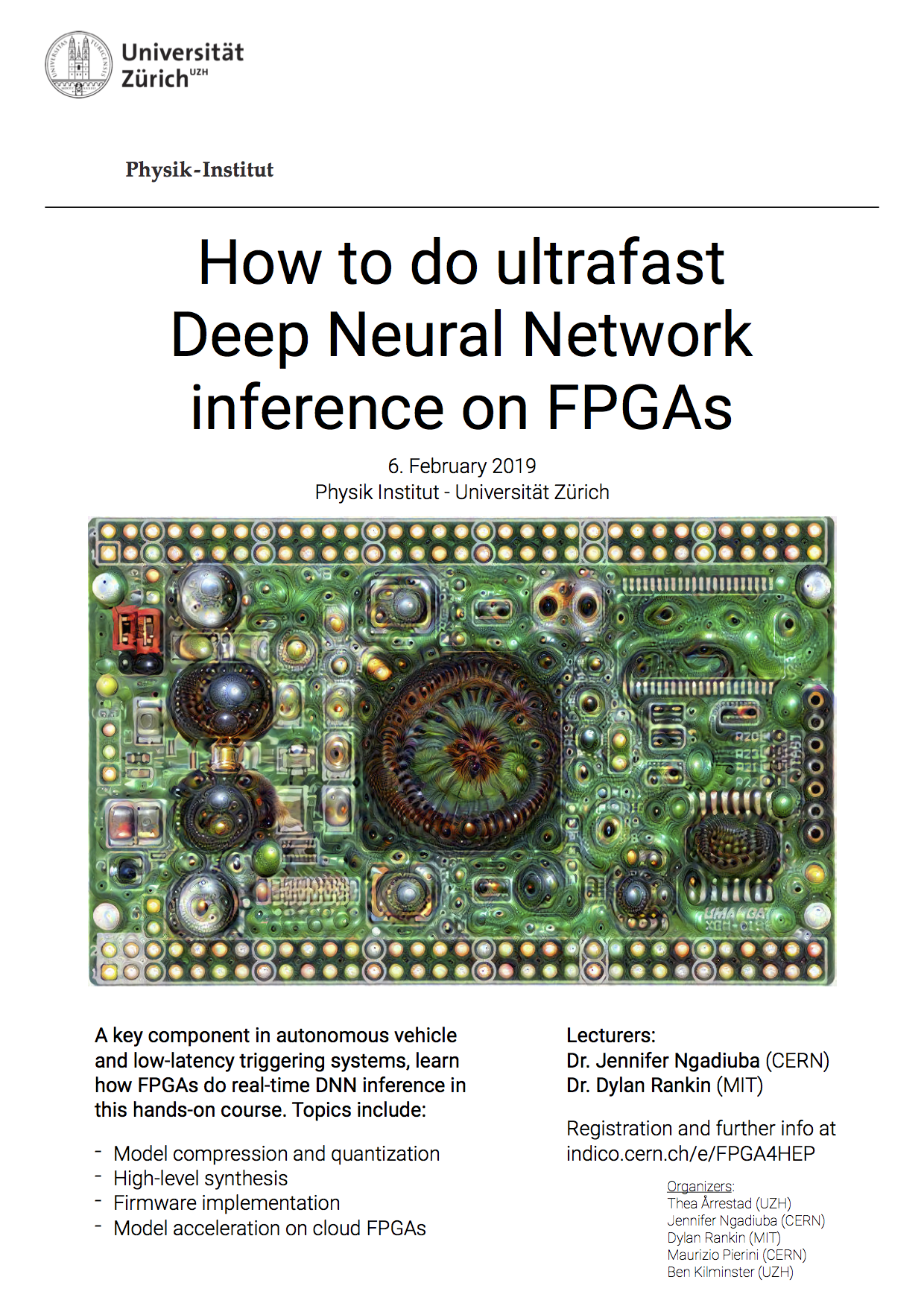
How to do ultrafast Deep Neural Network inference on FPGAs
Sign up for our one-day course on ultrafast DNN inference on FPGAs!
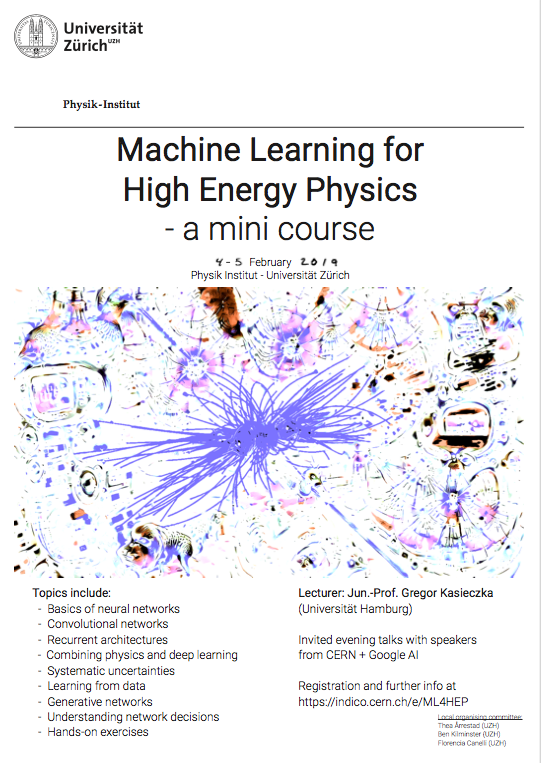
Machine Learning for High Energy Physics
Check out the Machine Learning school I'm organizing at UZH here!
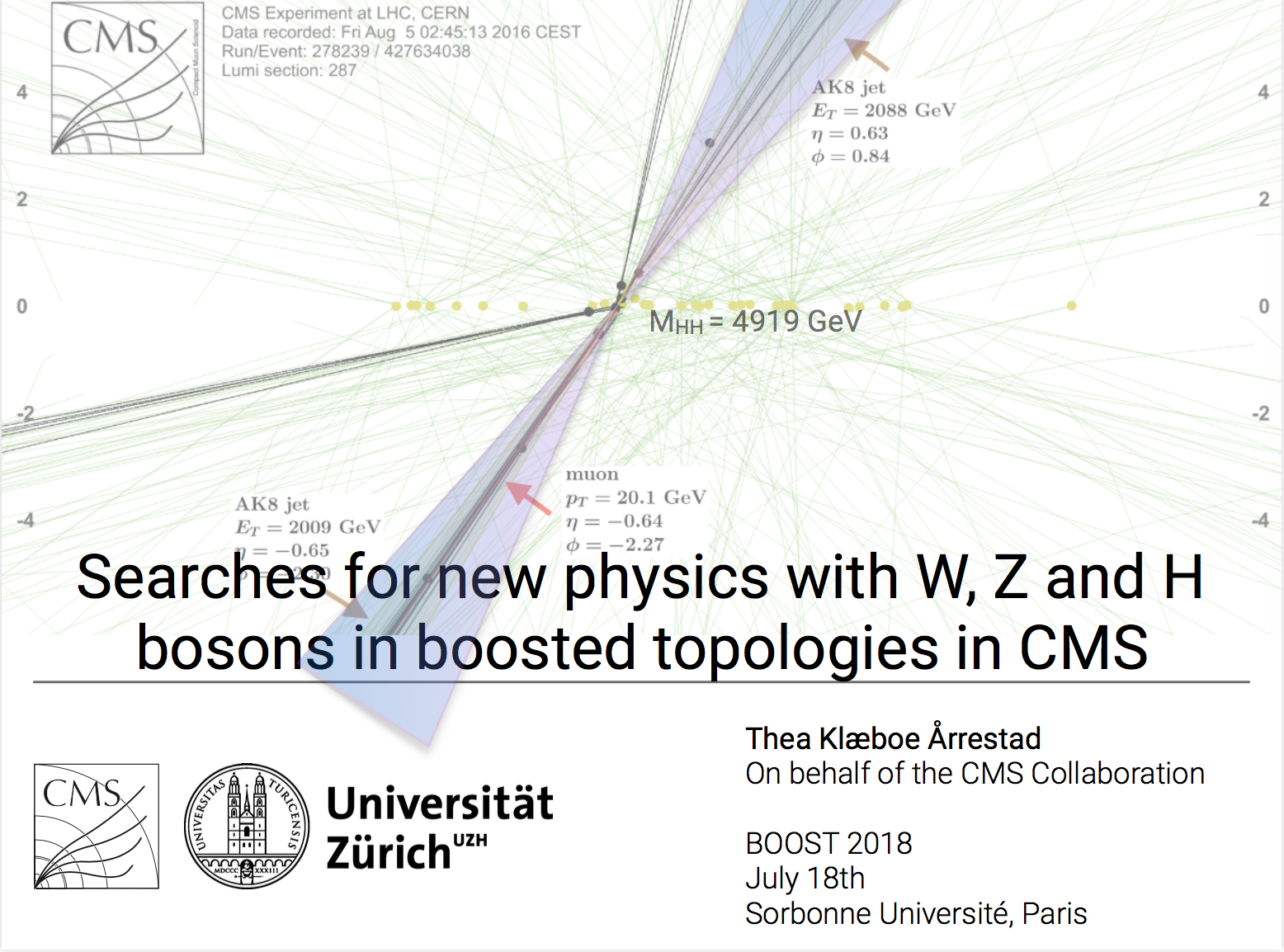
Searches for new VV resonances
This years overview talk on diboson resonances from the BOOST conference
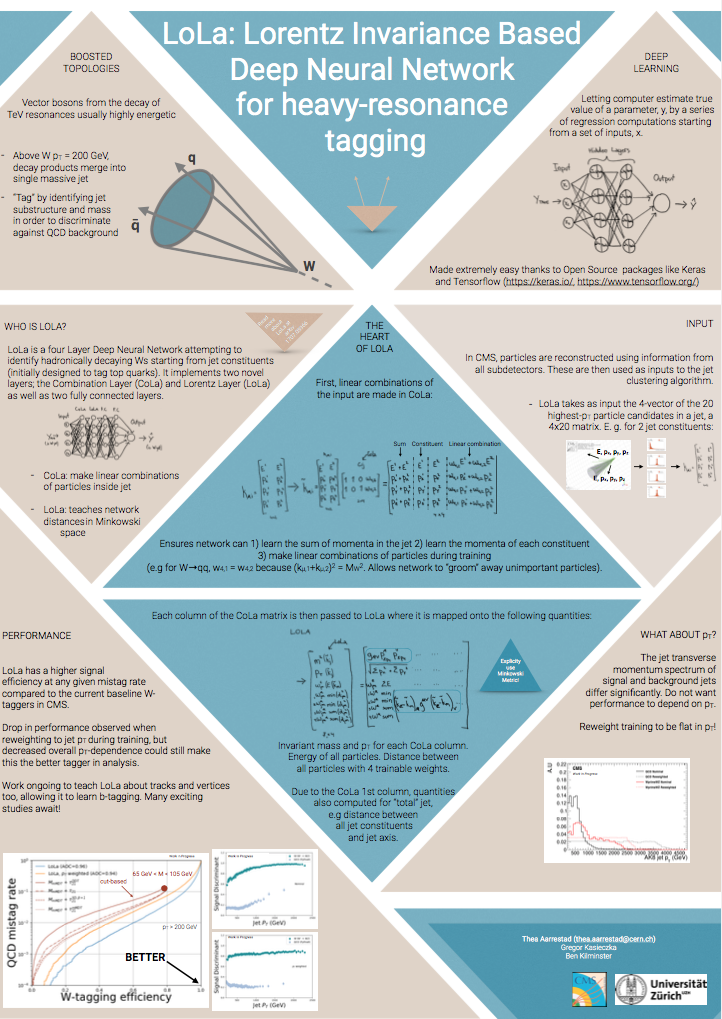
LoLa: Lorentz Invariance in TensorFlow
My poster on LoLa: A Lorentz Invariance Based DNN for W-tagging
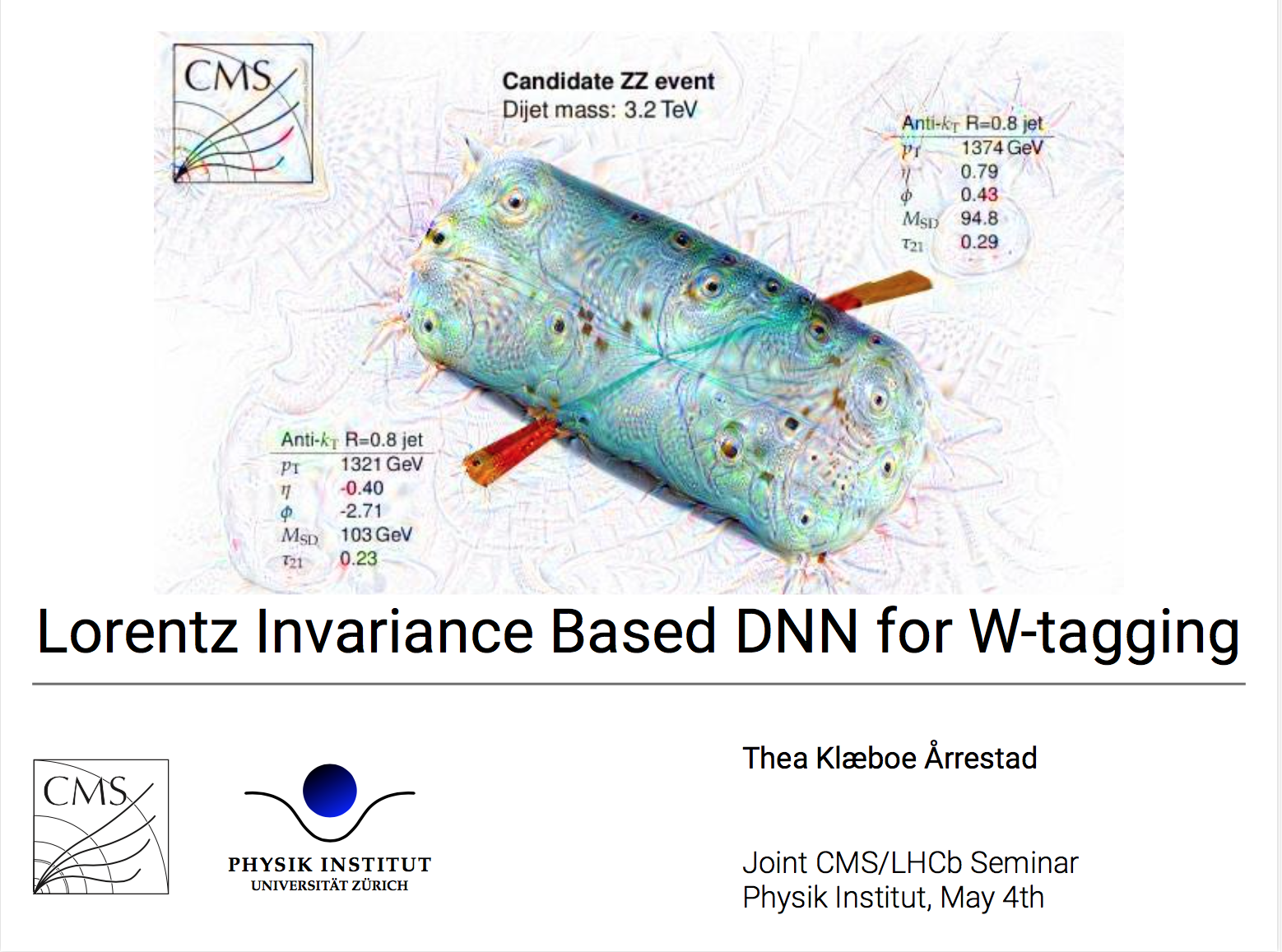
Lorentz Invariance Based DNN for W-tagging
A talk I gave on a Lorentz Invariance Based DNN for discrimination
162.png)
Search for massive resonances decaying into WW,WZ or ZZ bosons in proton-proton collisions at 13 TeV.
Our paper on the first 13 TeV search for diboson resonances in the all-hadronic final state with the CMS detector.
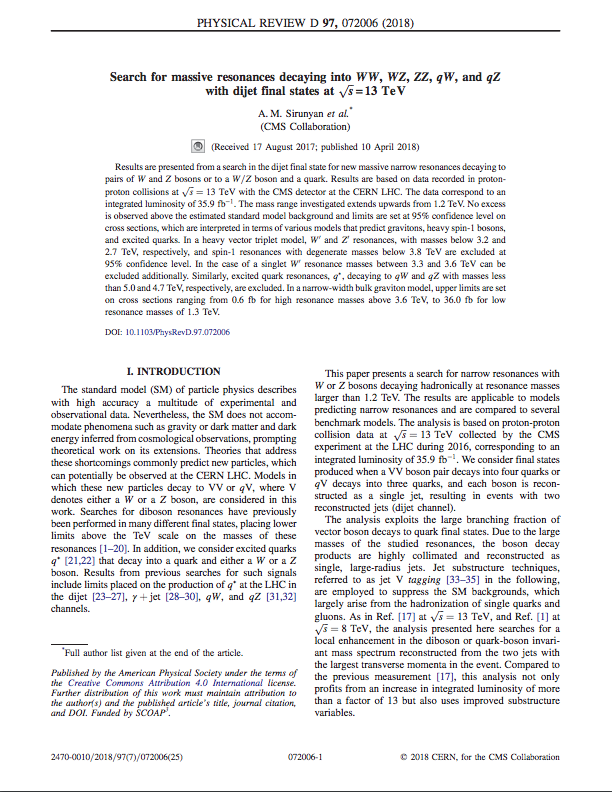
Search for massive resonances decaying into WW, WZ, ZZ, qW, and qZ with dijet final states at 13 TeV.
Our paper on searches for diboson resonances with a novel W-tagger using PUPPI+softdrop.
Get In Touch
Feel free to drop me a message below!
